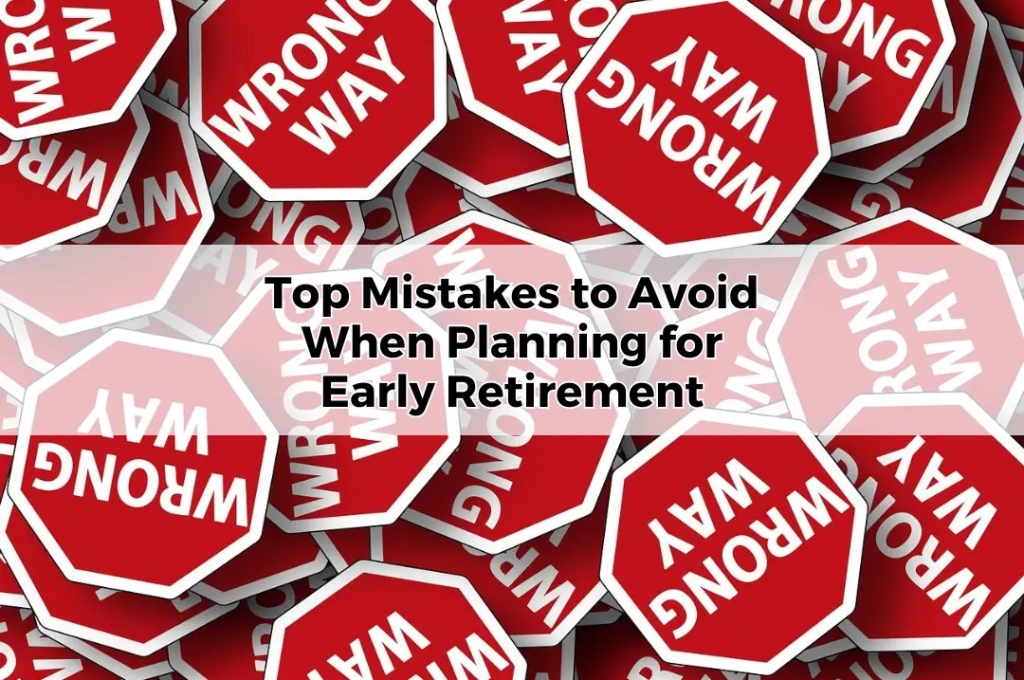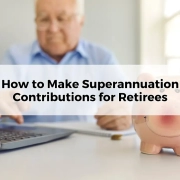Top Mistakes to Avoid When Planning for Early Retirement
Table of Contents
ToggleEarly retirement is a dream for many, but achieving it requires meticulous planning and disciplined financial management. While early retirement offers the chance for more freedom and time, it also demands a larger nest egg to cover potentially decades of living expenses. Missteps along the way can jeopardise your plans, leading to financial shortfalls or the need to return to work. Avoiding common pitfalls can make the path to early retirement smoother and help you maintain your financial security for the long haul.
Here are the top mistakes to avoid when planning for early retirement, with practical tips on how to stay on track.
Underestimating Retirement Expenses
One of the biggest mistakes early retirees make is underestimating their expenses in retirement. Without a clear budget, you risk running out of funds sooner than anticipated.
- Solution: Create a detailed retirement budget that includes essentials like housing, healthcare, food, and lifestyle expenses. Factor in additional expenses for travel, hobbies, and potential long-term care needs.
- Adjust for Inflation: Costs will rise over time, so factor in an annual inflation rate to ensure your savings maintain purchasing power.
Overestimating Investment Returns
Relying on overly optimistic investment returns can lead to a savings shortfall. Markets are unpredictable, and depending on high returns to sustain early retirement can backfire.
- Solution: Use conservative estimates for investment returns, ideally around 4-6%, to build a buffer. Consider consulting with a financial adviser to set realistic growth projections.
- Diversify Investments: A well-diversified portfolio can help smooth out volatility and reduce the risk of severe losses during downturns.
Failing to Account for Healthcare Costs
Healthcare is one of the most significant expenses in retirement. Without an employer’s health insurance, costs can add up quickly, particularly in early retirement.
- Solution: Look into private health insurance and compare policies that provide suitable coverage until you qualify for age-based government benefits. In Australia, consider policies that cover treatments not covered by Medicare.
- Emergency Fund for Medical Costs: Set aside extra funds specifically for unexpected healthcare costs.
Not Factoring in Longevity Risk
With medical advancements, people are living longer than ever, meaning your retirement funds might need to last 30 years or more. Many early retirees underestimate this, leading to a high risk of outliving their savings.
- Solution: Use retirement calculators that account for longer lifespans, aiming for funds to last until at least age 90 or even 100.
- Consider Lifetime Annuities: Products like annuities can offer a stable income for life, providing peace of mind that you’ll have income even in old age.
Neglecting to Plan for Taxes
Many early retirees focus on accumulating savings but fail to consider the tax implications of drawing down from investments. Unexpected tax liabilities can erode savings faster than anticipated.
- Solution: Work with a tax adviser to create a tax-efficient withdrawal strategy, prioritising tax-advantaged accounts like superannuation.
- Utilise Tax-Free Thresholds and Offsets: Ensure you’re taking advantage of any tax-free thresholds and offsets available for retirees, such as the seniors and pensioners tax offset (SAPTO) in Australia.
Relying Solely on Superannuation or Pension Plans
While superannuation and pension plans are excellent retirement tools, they’re typically designed for access later in life. Relying solely on them can limit your income options if you plan to retire before access age.
- Solution: Build a separate investment portfolio outside of super to provide income during early retirement.
- Consider Real Estate or Business Income: Diversify income streams with real estate investments or part-time consulting work to supplement your funds.
Withdrawing Too Much Too Soon
Drawing too heavily from your savings in the initial years can lead to “sequence of returns risk,” where early withdrawals during a market downturn deplete your funds faster.
- Solution: Set a sustainable withdrawal rate, ideally around 3-4% per year. Consider using a “bucket” approach, holding a portion of cash reserves to avoid selling assets in down markets.
- Adjust Withdrawals for Market Conditions: If markets are underperforming, reduce withdrawals to give your investments time to recover.
Overlooking Social Security or Age Pension Strategies
Planning for early retirement doesn’t mean you should ignore entitlements like the Age Pension or social security benefits. Maximising these can provide valuable income as you get older.
- Solution: Understand eligibility requirements and plan how and when you’ll draw on these entitlements. In Australia, for instance, the Age Pension eligibility age is currently 67 or older, and proper asset management can improve eligibility.
- Consider Income-Testing Strategies: Structure your assets to meet income and asset tests for Age Pension eligibility if applicable.
Not Planning for Market Downturns
Retiring early often means navigating more market cycles, including downturns that can impact the value of your portfolio. Without a strategy, downturns can significantly affect your income and capital.
- Solution: Keep a cash buffer or short-term bonds to cover 2-3 years of living expenses, providing security during market volatility.
- Consider a Conservative Allocation: As you near retirement, shift part of your portfolio into lower-risk investments to reduce exposure to market swings.
Ignoring the Need for Rebalancing
Your investment mix changes over time as markets fluctuate, which can increase your exposure to risk if left unchecked.
- Solution: Schedule periodic rebalancing, such as annually or semi-annually, to realign your asset allocation with your goals.
- Automate Rebalancing if Possible: Many super funds and financial platforms offer automatic rebalancing, ensuring your portfolio stays aligned with your risk tolerance.
Failing to Set Clear Retirement Goals
Without clearly defined goals, early retirees can struggle with financial decisions and risk depleting their funds faster.
- Solution: Define specific retirement goals, such as the lifestyle you want to maintain, travel plans, and major purchases. These goals can help you calculate how much you need to save and budget accordingly.
- Break Down Goals into Short and Long-Term: This approach helps you understand what immediate spending is reasonable and what needs to be conserved for later years.
Not Preparing for Lifestyle Adjustments
Early retirement often means lifestyle changes, including fewer social interactions or personal purpose previously provided by work. This shift can impact both mental health and finances if not planned.
- Solution: Think about how you’ll spend your time, whether through hobbies, volunteer work, or part-time employment.
- Plan a Realistic Budget for Leisure: Consider the costs associated with your lifestyle plans, including any new hobbies, travel, or social activities you’ll engage in during retirement.
Overlooking Estate Planning
For early retirees, estate planning is often put on the back burner. However, without a comprehensive estate plan, your assets may not be distributed according to your wishes, and beneficiaries may face unnecessary taxes.
- Solution: Create a will, designate beneficiaries, and set up powers of attorney and health directives. Revisit these documents regularly to ensure they align with your current goals.
- Consider Trusts or Superannuation Nominations: Using tools like trusts or binding death benefit nominations can help direct assets efficiently to your beneficiaries.
Not Working with a Financial Adviser
While DIY retirement planning can work for some, early retirement requires expertise in tax, investment, and superannuation rules. Without expert guidance, mistakes are more likely.
- Solution: Engage a qualified financial adviser, particularly one experienced with early retirement planning, tax optimisation, and managing market risks.
- Periodic Reviews: A financial adviser can also help you review and adjust your plan as circumstances change, keeping your strategy effective.
Conclusion
Planning for early retirement is an exciting but challenging endeavour that requires thorough planning, realistic expectations, and strategic financial management. Avoiding these common mistakes can help you achieve a financially secure retirement, allowing you to make the most of your early years with peace of mind. By preparing carefully, making informed decisions, and seeking guidance from a qualified financial adviser, you can turn early retirement from a dream into a sustainable reality.









